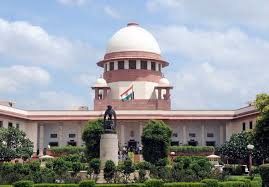NEW DELHI: Holding that legal services rendered by lawyers do not fall under the scope and ambit of the Consumer Protection Act, the Supreme Court on Tuesday ruled that litigants can’t sue lawyers for deficiency in service to claim damages.
“Advocates have to respect the client’s autonomy and are not entitled to make concessions without express instructions from client and transgress authority. Considerable amount of direct control is with the client of an advocate,” a Bench of Justice Bela M Trivedi and Justice Pankaj Mithal said.
Describing the legal profession as “sui generis” (unique), the Bench said it can’t be compared with any other profession as legal representation for a fee can’t be classified as a “service” under the Act.
It said that “services hired by a client of an advocate would be a contract of personal service and would therefore stand excluded from the definition of service contained in Section 2(42) of the Consumer Protection Act 2019.”
The top court overruled the 1995 verdict of the National Consumer Disputes Redressal Commission (NCDRC) which held that lawyers were covered under the Act. The NCDRC order was stayed by the Supreme Court in 2009.
The Bench, however, clarified that lawyers can be sued in courts for negligence and malpractices.
The top court said there was nothing to suggest that the Legislature intended to include professionals within the meaning of the Act.
“We have distinguished the legal profession from business and trade. We have said that a profession would require advanced education and training in some branch of learning or science. The nature of work is specialisation and skill, substantial part of which is mental rather than manual,” Justice Trivedi said, while pronouncing the verdict.
“Having regard to the nature of work of a professional, which requires a high level of education and training and proficiency, and which involves skill and specialised kind of mental work operating in specialised spheres, where actual success depends on various factors beyond one’s control, a professional cannot be treated equally or on a par with a businessman or a trader or a service provider of products or goods,” she added.
“This strengthens our opinion that a contract is of personal service and is excluded from definition of service under the Consumer Protection Act,” the Bench said, adding lawyers stood excluded from the ambit of the Act.
The top court also said that its 1995 verdict in Indian Medical Association vs VP Shantha and Others, bringing medical negligence under the Consumer Protection Act should be reconsidered.
“We are therefore of the considered opinion that the very purpose and object of the Consumer Protection Act 1986 as re-enacted in 2019 was to provide protection to the consumers from unfair trade practices and unethical business practices. There is nothing to suggest that the legislature ever intended to include professions or professionals within the purview of the Act,” the Bench said, directing that the issue should be placed before the Chief Justice of India to be referred to a larger Bench.


